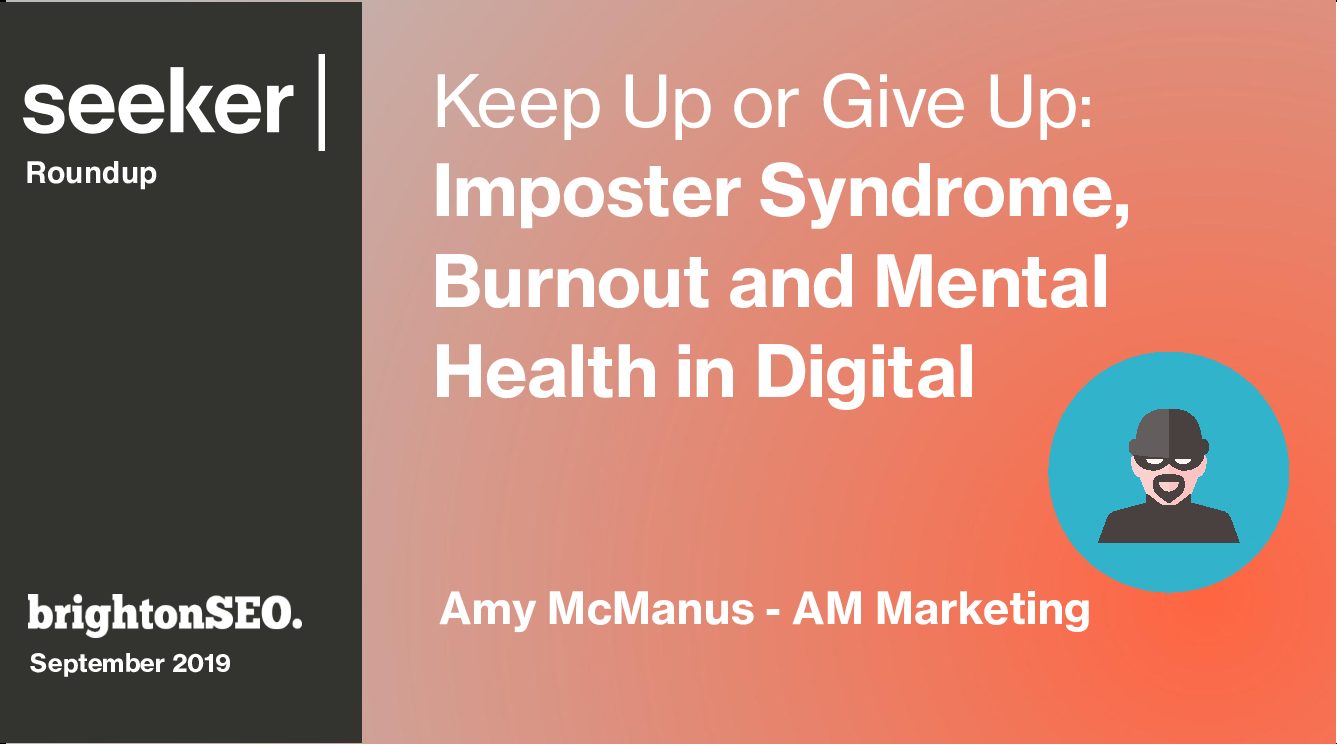
Amy McManus gave a poignant and emotional presentation on imposter syndrome and work-life balance. We were asked to raise our hand if we had ever suffered imposter syndrome in our work lives, a staggering 99% of people in the room put their hands up.
This is not something that if we ignore, it will go away. Amy looked at why so many of us suffer and how we can prevent it happening in the future.
Overview
Speaker’s name: Amy McManus
Job role and company: CEO/ Founder of AM Marketing
Links to Twitter profile: @ammarketing
Link to LinkedIn profile: https://www.linkedin.com/in/acmcmanus/
Link to the slides: TBC
What was the talk about?
Amy was involved in a car crash and suffered PTSD and extraordinary amounts of pain. What affected her the most was imposter syndrome she suffered afterwards.
As a sufferer, Amy looked at why, alongside the likes of law and medicine, digital is so high on the list of industries which has a large amount of people who suffer with mental health issues (burnout and stress). In doing so, she explored the causes of imposter syndrome and why so many of us in our industry suffer from it and how we can all help to prevent it in the future.
Favourite quote
“The digital industry is the only industry you can work in where you can go to sleep an expert and wake up a novice. We have a rapidly changing industry and this leads to a tremendous amount of mental health issues in the industry.” – Amy McMannus
Potential impact on the industry
Amy looked at why so many people in our industry are suffering imposter syndrome and mental burnout.
Here are some of the reasons she cited:
- High percentage of young people employed
- High screen time
- Social media perfection
- Our industry constantly changes
To help people avoid imposter syndrome, Amy asked that all digital agencies:
Should never make a process for a company after someone has suffered mental health, because one should already be a process in place.
She suggested all agencies:
- Implement personal growth chats on a regular basis.
- No late nights! (Working long hours = poor work) This will have an impact on your mental health and the work you are delivering to clients).
- No emails during holidays.
- Working at 80% capacity is important. When a new client or project comes on board someone can get to work without working over capacity. It doesn’t increase stress, it doesn’t negatively impact all the current work.
- Mental health days – if you need one, you take one.(This will prevent people being signed off work).
Key takeaways
- You don’t want to have the first conversation about mental health with an employee when they are already starting to struggle.
- You can give 2 hours of work to your client at 50%, OR you can give 1 hour to your client at 100%. You accomplish the same amount of work. What would you prefer?
- No late nights. Working long hours equals sub-standard work! This will have an impact on your mental health and the work you are delivering to clients.
